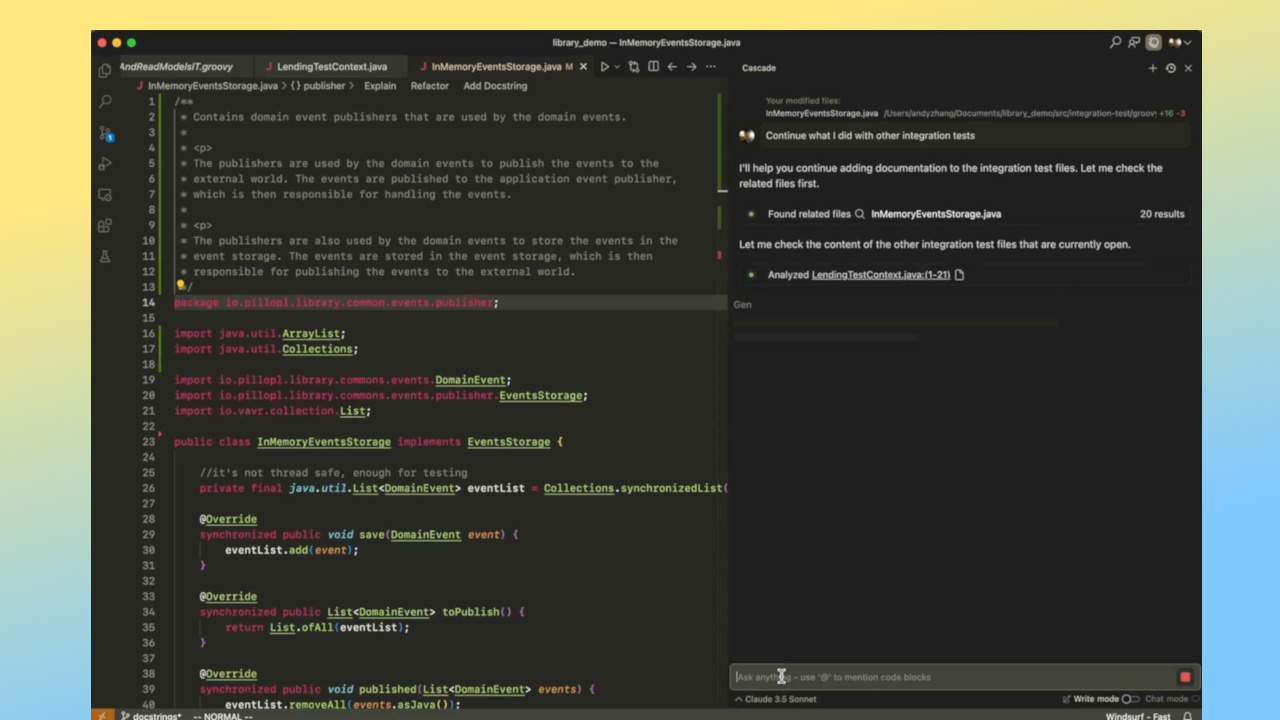Just weeks after acquiring developer tools company Windsurf, AI startup Cognition is offering voluntary buyouts to its roughly 200 new employees. The move is a stark acknowledgment of a culture clash, with Cognition providing a generous nine-month salary package for those who opt to leave.
This strategy signals the company’s intent to rapidly unify its team around a specific high-intensity culture. It aims to absorb Windsurf’s valuable technology and enterprise clients while filtering for employees who are explicitly aligned with its demanding, all-in mission.
A Culture Clash by Design
The buyout directly addresses the vast and seemingly irreconcilable gap in work-life expectations between the two companies. Vaikka monet teknologiayritykset edistävät joustavia ympäristöjä, Cognition on viljellyt pahamaineisesti “intensiivistä”ilmapiiriä. In a move that left no room for ambiguity, CEO Scott Wu explicitly defined the demanding conditions for the incoming staff, making it clear that this was not a culture they could gradually adapt to but a standard they must immediately meet.

In a blunt internal memo obtained by news outlets, Wu confirmed the company’s demanding expectations, articulating an unapologetic stance on work ethic. “We don’t believe in work-life balance—building the future of software engineering is a mission we all care so deeply about that we couldn’t possibly separate the two,”Wu said.”Tiedämme, että kaikki, jotka liittyivät Windsurfiin, eivät ole ilmoittautuneet liittymään kognitioon, missä vietämme 6 päivää toimistossa ja kello 80 tuntia viikkoa.”
His remarks serve as a deliberate filter, designed to separate employees who view their job as a core mission from those who seek a more conventional career path.
This is not a clumsy integration but a swift and calculated cultural reset. Rather than risk internal friction or a decline in productivity from a disengaged workforce, Cognition is opting to pay a significant sum to ensure only the most aligned individuals remain. Wu framed the decision as an equitable one, emphasizing that the company doesn’t believe in forced cultural assimilation.
He explained the goal was to provide a respectful exit for those who had not signed on for such an extreme commitment, noting, the company doesn’t believe in forced cultural assimilation, acknowledging that not all employees may wish to remain post-acquisition, and wanting to give them an equitable exit option.
The offer, which gives the roughly 200 affected employees until August 10 to decide, follows the layoff of approximately 30 other Windsurf employees just days prior. This two-pronged approach—a targeted culling followed by a voluntary, incentivized departure—appears to be a meticulous strategy to forge a smaller, more homogenous, and intensely motivated team ready to tackle Cognition’s ambitious goals without cultural baggage.
The Chaotic Path to Acquisition
This dramatic move is the final chapter in a chaotic corporate saaga tuulilasin. The company’s recent history has been a rollercoaster of high-stakes deals, stunning reversals, and strategic poaching that highlights the brutal competition in the AI sector.
Initially, Windsurf was the target of a reported $3 billion acquisition by OpenAI. That deal spectacularly imploded, reportedly after Microsoft, OpenAI’s largest investor and key partner, objected to the intellectual property terms, fearing Windsurf’s tech would compete with its own GitHub Copilot.
The stalemate killed the deal and created a perfect opening for a rival. Google executed a stunning “acquihire,”poaching Windsurf’s CEO Varun Mohan, co-founder Douglas Chen, and other key talent for its DeepMind division, while licensing Windsurf’s technology.
The move left Windsurf a hollowed-out shell. Väliaikainen toimitusjohtaja Jeff Wang vangitsi myllerryksen postissa myöntäen:”Viimeiset 72 tuntia ovat olleet urani villimpiä vuoristoratamatkaa.”Days later, Cognition announced it was buying the remaining company, setting the stage for its cultural overhaul.
‘Equity Is a Lottery Ticket’: A Harsh Reality for Employees
The turmoil has cast a harsh light on the precarious nature of startup employee equity. The story of Prem Qu Nair, Windsurf’s second-ever employee, has become a powerful cautionary tale for tech workers across the industry.
Nair revealed he was forced to accept a payout of only 1% of his vested share value after the Google deal. In a public post that quickly went viral, he stated, “I was ultimately given a payout of only 1% of what my shares would have been worth at the time of the deal.”His experience gave a prominent voice to the often-overlooked casualties of high-stakes tech acquisitions.
His story ignited a massive debate on platforms like Hacker News. Yksi kommentoija tiivisti täydellisesti laajalle levinneestä skeptisyydestä:”Oman pääoma on arpajainen lippu. Palkka on rahaa pankissa.”Others noted that headline acquisition figures are often misleading, with complex deal structures consuming most of the sale price before it reaches common stockholders.
The controversy was further fueled by Y Combinator President Garry Tan. After initially tweeting that dozens of founding engineers received seven-figure payouts, his credibility was damaged by a now-deleted post that quipped Nair’s tweet “sounds like a tweet that cost $20M.”The comment was widely perceived as dismissive, further fueling the community’s outrage.
A New Playbook in the AI Talent War
The Windsurf saga is more than a failed deal; Se on pelikirja uudelle, aggressiiviselle vaiheelle AI-kykyjen sodassa. Tekniset jättiläiset ottavat käyttöön hienostuneita “osta tai salametsästöä”-strategioita, jotka voivat suolentaa kokonaisia yrityksiä turvaamaan eliittitiimit ja arvokkaat immateriaalioikeudet.
Tämä konflikti lisääntyy dramaattisesti. Vain viikkoja ennen kuin purjelautaluettelo romahti, Meta salasi onnistuneesti useita tutkijoita Openaiista. The raid prompted an emotional internal memo from OpenAI’s Chief Research Officer, Mark Chen, who wrote to his team, “i feel a visceral feeling right now, as if someone has broken into our home and stolen something.”
In a direct response, OpenAI was forced to dramatically increase its stock-based compensation to prevent a staff exodus. That intense, cash-fueled environment set the stage for Google’s masterstroke with Windsurf, which was less an acquisition and more of a strategic decapitation.
For Cognition, the subsequent buyout strategy is clear. Vedonlyönti on, että Windsurfin ylimmän tason IDE: n sulaminen omalla AI-agentti-alustalla luo lyömättömän kehittäjäympäristön. This move signals it is prioritizing a unified, high-intensity culture over pure headcount, even if it means paying a significant sum for employees to walk away.